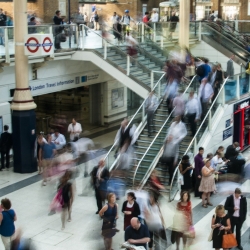March 8, 2022
Active commuting should be part of ESG strategy, says BCO
 Putting active commuting at the heart of ESG policies can shift commuters towards more sustainable forms of travel, improve individual health and wellbeing and help companies cut carbon emissions, new research from the British Council for Offices (BCO) has found. A new BCO research report, The Market Cycles II examines the rise of cycling in the UK over the past five years and its impact on office specifications. The report highlights that this period has seen an increase in cycling activity in the UK, with a particularly sharp rise in the past two years as the COVID-19 pandemic has caused a shift in travel habits, and a rise in active commuting. (more…)
Putting active commuting at the heart of ESG policies can shift commuters towards more sustainable forms of travel, improve individual health and wellbeing and help companies cut carbon emissions, new research from the British Council for Offices (BCO) has found. A new BCO research report, The Market Cycles II examines the rise of cycling in the UK over the past five years and its impact on office specifications. The report highlights that this period has seen an increase in cycling activity in the UK, with a particularly sharp rise in the past two years as the COVID-19 pandemic has caused a shift in travel habits, and a rise in active commuting. (more…)







 A new study from researchers at University College London claims that the journey to work has benefits for people’s mental health, fitness levels and work-life balance. According to the study into attitudes to commuting led by neuroscientist
A new study from researchers at University College London claims that the journey to work has benefits for people’s mental health, fitness levels and work-life balance. According to the study into attitudes to commuting led by neuroscientist 
 As employees across the UK are to set to embark on their return to the workplace following the easing of COVID-19 restrictions, new research by
As employees across the UK are to set to embark on their return to the workplace following the easing of COVID-19 restrictions, new research by 
 While workers in the UK have been working from home, if they can, for almost a year, a third say they miss commuting, claims research from recruiter
While workers in the UK have been working from home, if they can, for almost a year, a third say they miss commuting, claims research from recruiter 






 Each flexible coworking space created in a smaller town or suburban area reduces carbon emissions by an average of 118 tonnes a year thanks to shorter commutes, an international
Each flexible coworking space created in a smaller town or suburban area reduces carbon emissions by an average of 118 tonnes a year thanks to shorter commutes, an international 







May 20, 2021
The pandemic will transform the way we commute
by Tim Burgess • Comment, Flexible working, Wellbeing